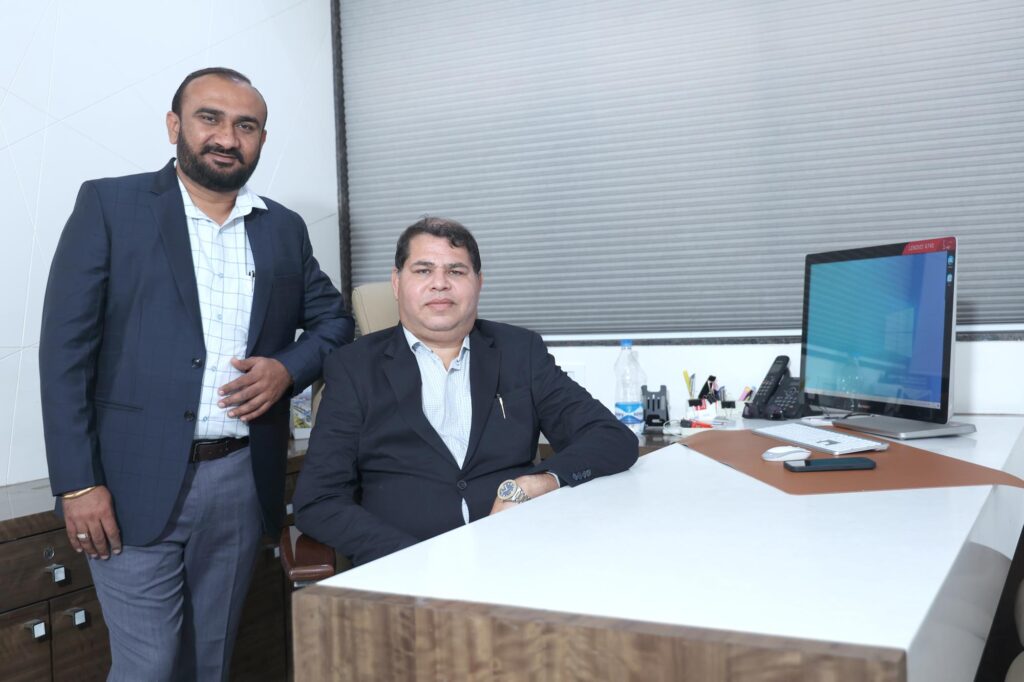
Gujarat Logistics, spearheaded by its Founder and Partner Deepak Thacker and Rajesh Madhvi, Partner stands out as a formidable force in India’s logistics space, offering a comprehensive suite of transportation solutions. Thacker elaborates on the company’s core operations, emphasizing its specialization in domestic FTL-FCL trucking services for import and export cargoes. With a fleet exceeding 300 GPS-enabled heavy commercial vehicles, Gujarat Logistics boasts the industry’s highest Turn-Around Time (TAT) performance, ensuring swift and efficient delivery of goods, writes Rajesh Rajgor
Gujarat Logistics emerges as a leading player in India’s logistics sector. Operating primarily in Gujarat’s industrial clusters near major seaports like Mundra and Kandla, the company aims to expand its footprint to neighboring states like Rajasthan and Madhya Pradesh. The company is renowned for its specialization in domestic FTL-FCL trucking services and a technologically advanced fleet of over 300 GPS-enabled heavy commercial vehicles.
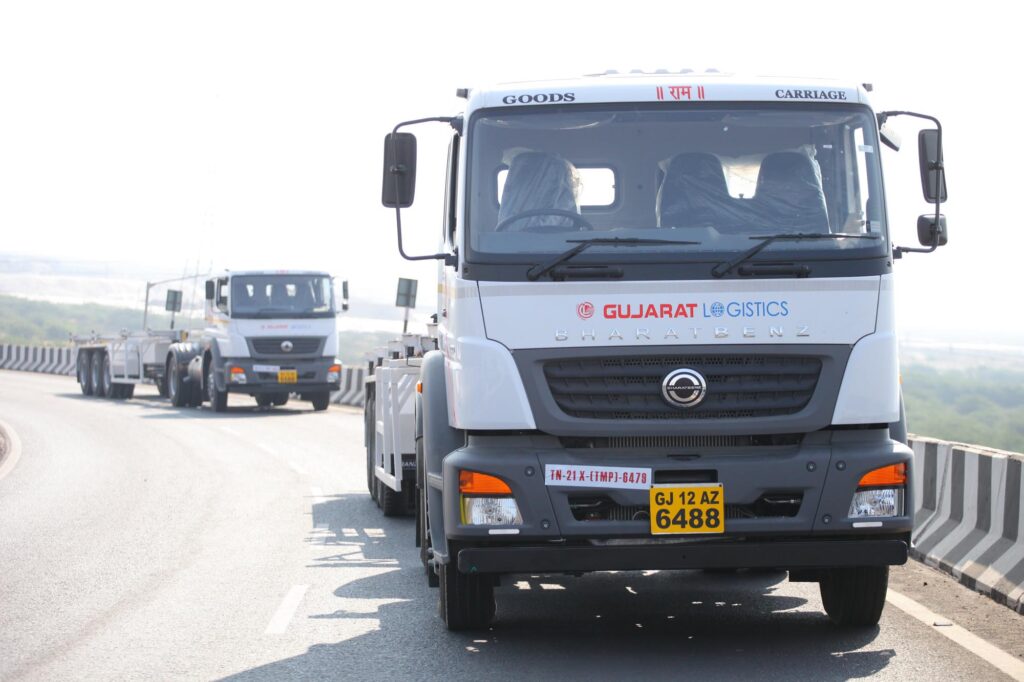
With a diverse clientele spanning industries such as manufacturing, agriculture, automotive, and chemicals, Gujarat Logistics excels in managing time-critical shipments, leveraging advanced ICT IOT technology to ensure seamless compliance with shipping line restrictions and customs regulations. Strategically allocating its fleet to meet the specific needs of different industry segments, Gujarat Logistics epitomizes operational excellence and customer-centricity in the logistics landscape.
Strategic Expansion and Operational Excellence
Thacker sheds light on the strategic focal points of the company’s operations, pinpointing major seaports like Mundra and Kandla as key hubs. He articulates, “Our current services are centered around Gujarat’s industrial clusters, but we have our sights set on expansion into neighboring states like Rajasthan and Madhya Pradesh to amplify our reach and operational capabilities.”
When queried about Gujarat Logistics’ clientele, Thacker underscores the company’s diverse portfolio spanning sectors such as polymers, automobile, renewable energy, and agro-based industries. “Our forte lies in managing time-sensitive shipments critical for EXIM logistics, ensuring seamless compliance with stringent shipping line restrictions and customs regulations,” he affirms.
Delving into resource allocation strategies, Thacker explains, “We meticulously allocate our fleet to cater to the unique demands of each industry segment. A substantial portion is dedicated to serving the pulp and paper and recycling sectors, while the remainder caters to polymers, steel, and agro-based industries.”
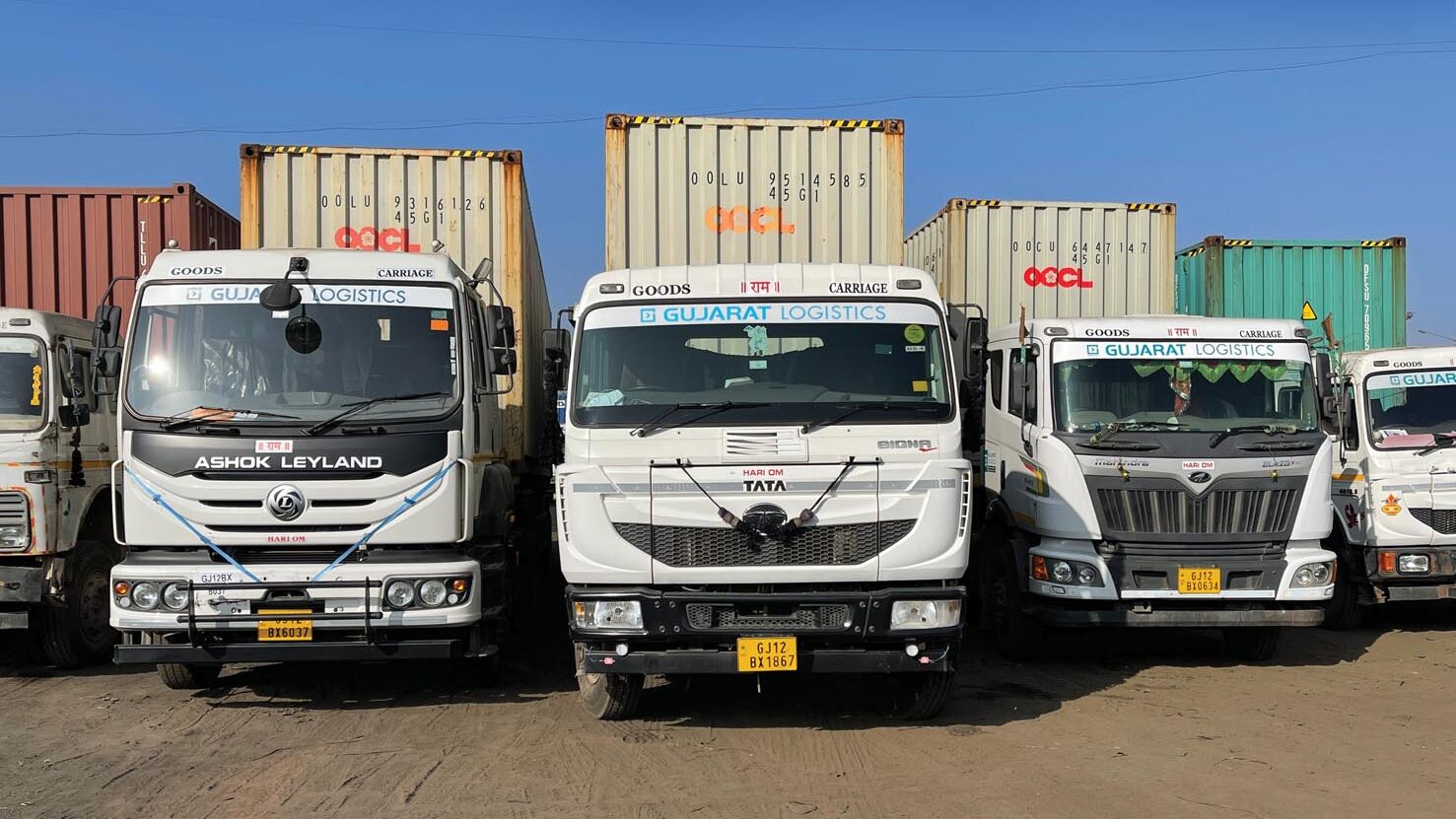
Thacker elucidates on a notable case study involving optimization of container movements. “Traditionally, clients resorted to separate containers for imports and exports, incurring dual mobilization costs. By introducing container triangulation, we’ve successfully slashed last-mile logistics expenses by 40%, simultaneously championing sustainability efforts by minimizing emissions,” he elucidates.
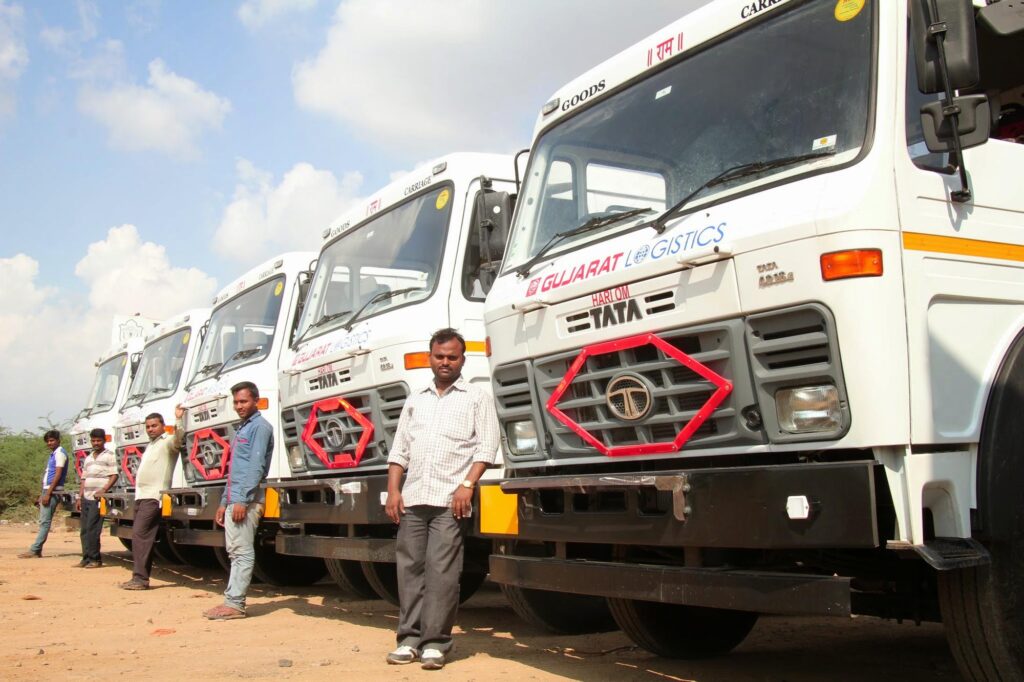
Looking ahead, Thacker unveils plans for a state-of-the-art warehousing facility at Mundra Port. “This facility will serve as a pivotal node for end-to-end global supply chain management solutions, augmenting our value proposition and bolstering client satisfaction,” he envisions.
In terms of fleet modernization initiatives, Thacker discloses plans to pilot a fleet of 20-30 electric, LNG, or CNG vehicles to enhance operational efficiency and environmental sustainability. “These endeavors underscore our unwavering commitment to pioneering eco-friendly practices within the logistics landscape,” he emphasizes.
Thacker underscores Gujarat Logistics’ steadfast dedication to fostering workforce diversity and addressing pertinent challenges such as driver shortages. “We actively champion inclusive hiring practices, actively recruiting women for roles traditionally dominated by men. Furthermore, we offer competitive compensation packages and robust career progression pathways to retain and attract top-tier talent,” he underscores.
Tech-Driven Excellence
He further paints a compelling portrait of the company’s relentless pursuit of excellence in India’s ever-evolving logistics sector. With a blend of strategic foresight, technological innovation, and unwavering commitment to customer satisfaction, Gujarat Logistics has carved a niche for itself as a leader in the transportation industry.
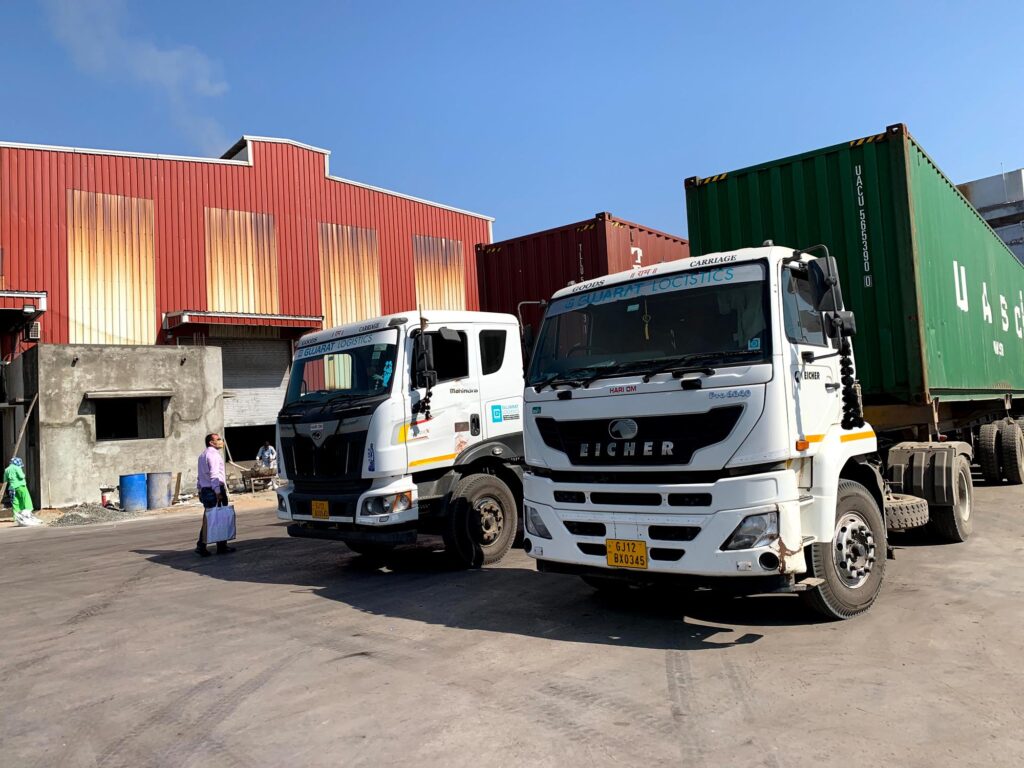
Thacker’s narrative delves deep into the technological initiatives spearheaded by Gujarat Logistics to enhance operational efficiency and deliver seamlessly integrated logistics solutions. “We’ve embarked on a journey of innovation,” Thacker asserts, “implementing a suite of advanced technology initiatives to propel our operations into the digital age.” These initiatives encompass a range of cutting-edge tools and systems, including GPS-enabled OBD devices, state-of-the-art fleet management systems, and cloud-hosted ERP software. Together, these technologies empower Gujarat Logistics to optimize routes, track shipments in real-time, and ensure the timely delivery of goods, setting new benchmarks for efficiency and reliability in the industry.
But Gujarat Logistics’ technological prowess is not confined to mere operational enhancements. Thacker underscores the transformative impact of these advancements on all stakeholders involved. “Our customers benefit from unparalleled visibility into their shipments,” he explains, “enabling them to make informed decisions and streamline their own operations.” Meanwhile, employees undergo extensive training to master these technologies, fostering a culture of innovation, efficiency, and safety within the organization.
Tailored Solutions Driving Value Across Diverse Industries
In terms of target segments and goods transported, Gujarat Logistics emerges as a trusted partner for industries spanning polymers, pulp and paper, automobiles, renewable energy, and agro-based sectors. Thacker highlights the company’s specialized expertise in handling containerized movements for imports and exports, leveraging innovative solutions to optimize costs and minimize environmental impact. “We pride ourselves on our ability to tailor our services to meet the unique needs of each industry,” Thacker remarks, “ensuring seamless logistics solutions that drive value for our clients.”
Yet, amidst its remarkable achievements, Gujarat Logistics confronts persistent challenges that plague the broader logistics ecosystem in India. Thacker acknowledges the infrastructural deficiencies and regulatory complexities that hinder efficiency and impede growth. “While we’ve made significant strides,” he admits, “there’s still much work to be done to address these systemic issues.” Nevertheless, Thacker remains optimistic, advocating for collaborative efforts between industry stakeholders and policymakers to drive meaningful change and unlock the full potential of India’s logistics sector.
Gujarat Logistics’ success story, according to Thacker, is anchored in two fundamental principles: strategic technological adoption and an unwavering commitment to customer satisfaction. “We’ve always been at the forefront of innovation,” Thacker asserts, “constantly seeking out new technologies and methodologies to enhance our offerings and stay ahead of the curve.” This customer-centric approach has earned Gujarat Logistics a sterling reputation as a trusted logistics partner, with clients relying on the company for their most critical transportation needs.
Finally, Thacker offers a glimpse into Gujarat Logistics’ financial performance, providing insight into the company’s fiscal health and growth trajectory. “In FY24, we achieved a turnover of INR 1200 million,” he reveals, “with ambitious targets set for the current fiscal year.” This upward trajectory reflects Gujarat Logistics’ unwavering dedication to excellence and its ability to adapt and thrive in a dynamic market environment. With its steadfast commitment to pushing boundaries, embracing change, and exceeding customer expectations, Gujarat Logistics is poised to continue its journey of growth and success, shaping the future of transportation in India and beyond.